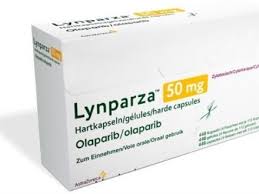AstraZeneca and MSD announced positive results from their phase 3 PROfound trial for Lynparza in treating men with metastatic castration-resistant prostate cancer (mCRPC), who have homologous recombination repair gene mutation (HRRm) and had treatment with other anticancer drugs.

Results from the trial showed a statistically significant and clinically meaningful improvement in the primary endpoint of radiographic progression-free survival (rPFS) with Lynparza versus Janssn’s Zytiga and Pfizer’s Xtandi in men with mCRPC selected for BRCA1/2 or ATM gene mutations, a subpopulation of HRR gene mutations.
The two companies also confirmed a safety and tolerability profile that was generally consistent with previous trials.
Lynparza is a poly ADP-ribose polymerase (PARP) inhibitor that has the mechanism of eliminating cancer by over-accumulating mutations in the genome of cancer cells. PARP is an enzyme that repairs DNA damage in cells. However, the enzyme can also repair the DNA of cancer cells, which, in turn, allows cancer cells to survive.
Recently, various multinational pharmaceutical firms have been showing interest in the mechanism of PARP inhibitors to address cancer that has a high unmet medical need such as prostate cancer.
“For men with metastatic castration-resistant prostate cancer the disease remains deadly, especially in those who have failed on a new hormonal anticancer treatment,” said José Baselga, executive vice president of oncology R&D at AstraZeneca. “This trial is the only positive phase 3 trial of any PARP inhibitor in metastatic castration-resistant prostate cancer where the need for new, effective therapies is high.”
The PROfound trial also demonstrates the potential value of genomic testing in this at-risk patient population, Baselga added.
Roy Baynes, AstraZeneca's senior vice president and head of global clinical development, also said, “Metastatic castration-resistant prostate cancer is a deadly disease and represents an area of critical unmet medical need.”
Phase 3 PROfound trial is another example of MSD and AstraZeneca’s shared commitment to improving long-term outcomes for people living with cancer, Baynes added. AstraZeneca and MSD plan to present the full data from the trial at a forthcoming medical meeting.
The two companies are also exploring additional trials in prostate cancer, including the ongoing phase 3 PROpel trial, testing Lynparza as first-line therapy in mCRPC in combination with abiraterone.

